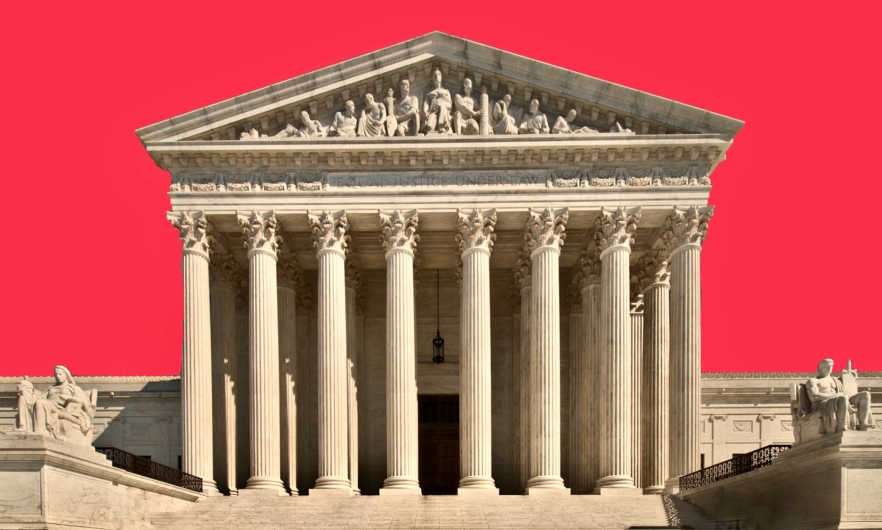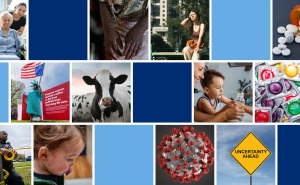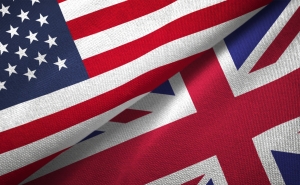What Happens if the Supreme Court Overturns Roe v. Wade?
Abortion regulation will fall to the states—many of which are poised to ban the procedure altogether.

Interview by Joshua Sharfstein
Ever since the Supreme Court heard arguments in December 2021 on the case of Dobbs v. Jackson Women’s Health Organization, which challenges a Mississippi law banning abortion after 15 weeks, legal experts have predicted that the protections afforded by Roe v. Wade would be curtailed by the court’s decision.
Then, last month, a working draft of a Supreme Court decision on the case was leaked to the media and the public. In this Q&A, adapted from the May 27 episode of Public Health On Call, attorney and public health expert Joanne Rosen, JD, a senior lecturer in Health Policy and Management, talks about what the opinion expressly says, why it would upend precedent, and what may happen at the state level. They also discuss the immediate and long-term consequences—including for public health—if Roe is overturned.
Headlines say that the leaked draft Supreme Court opinion may overturn Roe vs. Wade. This is an area that you've worked in and thought about a great deal. How did you read this leaked draft opinion?
Just as you've described it from the headlines, it looks like five justices on the Supreme Court are prepared to reverse Roe versus Wade and a really important follow-up case, Planned Parenthood versus Casey.
It's the first draft; the date on it is February 10. But the position of the court is unambiguous in this draft opinion written by Justice Alito. The court says that Roe was egregiously wrong from the very start, that the reasoning is extremely or exceedingly weak, and that there is not in the Constitution a right to decide whether to abort or terminate a pregnancy. So it is a full repudiation of the constitutional precedents that have protected the right to make decisions about whether to continue a pregnancy.
And it was written not perhaps in the most humble tone.
That was the other thing that really struck me when I read the opinion. First was the fact that it was leaked. This is the first time I think, in history, that a draft opinion, a working draft, has been released to the press and the public well in advance of the final opinion being published.
Second was the content, of course, and the tone. It is a very forceful, strongly worded, almost angry opinion written by the court. It's the kind of tone that I'm more familiar with in dissenting opinions—in the decisions written by the justices who would have decided the case the other way and are angry because they think that it was wrong. That kind of forceful, aggressive, very strong tone is not what you usually see in opinions of the court.
The consequences of an opinion like this would be pretty immediate in many parts of the country. How would the Supreme Court's decision affect what can happen at the state and local level?
Many states in the country have long been preparing for the possibility that Roe would be overturned. Some of the states have what are known as trigger laws—laws that are already on the books and that will come into force and ban abortion immediately in the event that Roe is overturned. According to Guttmacher Institute, 26 states either have trigger laws or through some other mechanism would be poised to ban abortion pretty much immediately if Roe is reversed.
There are 15 states and DC that have laws in place already that are protective of abortion. Of those states, a small number—including Maryland, Connecticut, and California—have introduced more extensive protections for abortion in anticipation that this Mississippi case could in fact reverse Roe and [that if] these 26 other states immediately ban abortion, women will travel from their states to these protective states.
Then we have a smaller number of states that are what I might call hybrid states. They are not set to ban abortion outright, but nor are they protective of abortion. Florida is one of the states; Illinois is another. Florida has introduced a 15-week ban, but they don't appear ready to reverse or ban abortion altogether. Those are the ramifications of a reversal of Roe—and they will be immediate.
The laws that might take effect vary. Some might be the 15-week version you talked about; others go further. Can you talk a little bit about the differences?
Prior to the Dobbs case, this Mississippi case, many states had introduced laws that were pre-viability abortion bans—laws that violated the central premises of Roe and other abortion cases. They had all been enjoined, or halted from going into effect, because they were so clearly unconstitutional. There were six-week bans and eight-week bans. There have been some 20-week bans that have been allowed to go into effect; those are usually “fetal pain” bans. So, there have been a range of abortion restrictions that haven't banned abortion outright but have severely restricted or curtailed access.
The one exception I want to raise that's already in force is Texas SB 8, which came into effect on September 1. It's a six-week abortion ban, and because of a novel and very deliberate enforcement mechanism, despite the fact that it is clearly unconstitutional, it has been allowed to go into effect. So Texas has been operating as if Roe were reversed since September.
And the laws may go further. The laws may ban abortion altogether if Roe was reversed.
And they would be permitted to do so.
Are you seeing any patterns in terms of whether there would be exceptions, for example, in cases of rape or incest, or limits to who could be charged [with a crime]? What's the range of things that could happen?
There's a wide range. The Mississippi law at issue in Dobbs does not contain exceptions for pregnancies that are the result of rape or incest. It has been more typical to see those exceptions. I think there will always be exceptions for instances in which continuation of the pregnancy threatens the pregnant person's life. I don't know whether there will also be exceptions for pregnancies that threaten the pregnant person's health.
Under Roe and Casey, states are allowed to ban abortion after viability so long as those bans include exceptions for the woman's life or health being imperiled. But if Roe is reversed, those exceptions would be left to the state.
One of the things the draft opinion says on this point is that abortion restrictions will be evaluated in the same way that any other health and welfare restrictions are currently evaluated, which is to say under a much lower, much more deferential level of scrutiny. And the court does say in the Dobbs leaked opinion that there will be a presumption that any abortion restrictions would be valid just in the way that other health restrictions are presumed to be valid, so long as the court has a legitimate interest. And the court says—and this is right out of Dobbs—that one legitimate interest for the state in banning abortion or restricting abortion is to try to protect fetal life from the very beginning of pregnancy. So that clearly would allow a ban.
The draft opinion also raises some really difficult questions for the relationship between states that may want to stop all abortions and others that may want to protect people who are getting abortions. How do you see that playing out?
One of the issues that's really alive right now is whether a state that bans abortion may try to extend its reach extra-jurisdictionally and prevent people who reside in that state from going to other states where abortion is legal to get that abortion, and this is pretty much uncharted territory. We'll have to wait and see.
There are legal arguments that a state cannot extend the reach of its criminal law into other states. But those are some of the methods being discussed and could be on the table in some states, so that even though their criminalization will only take place in their state, attempts to prevent people from leaving that state and going to other states, or prevent them from returning, or asking people questions about the purposes of their travel out of state—this is all within the realm of legislative activity that states might try.
In addition to being a lawyer, you are also a faculty member at the School of Public Health. How have you thought about the public health consequences of what might be in store?
We already you know that 75% of the people who currently get abortions are either low-income or poor. Abortions often have to do with not having the economic wherewithal to take care of this child, with a lot of economic disruption. So the consequences creating a constitutional greenlight that would allow states to go even farther than they have in regulating abortion will largely be borne by women of low income.
We also know that African American and Latina women have abortions at higher rates than non-Hispanic white women. And again, the intersectionality of poverty or low socioeconomic status and race are also at play. Again, we know there are already profound health inequities in the ability to control reproductive autonomy and to raise children. If Roe is reversed, it will deepen and exacerbate these existing health inequities.
Joshua Sharfstein, MD, is the vice dean for Public Health Practice and Community Engagement and a professor in Health Policy and Management at the Johns Hopkins Bloomberg School of Public Health. He is also the director of the Bloomberg American Health Initiative and a host of the Public Health On Call podcast.





